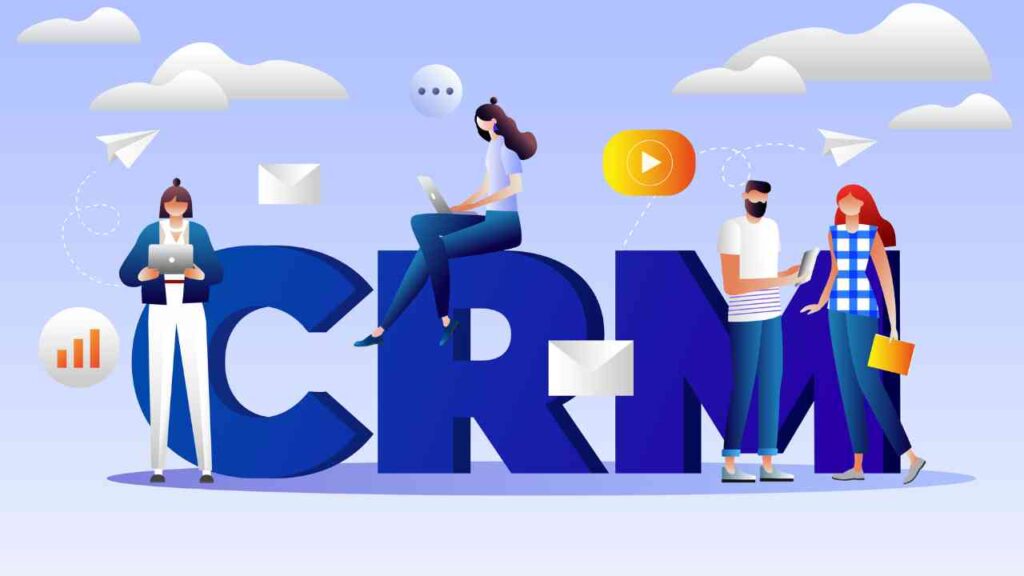Estimating Campaign Outcomes with CRM

When it comes to running successful marketing campaigns, accurate estimation of outcomes is crucial. Without a clear understanding of the potential results, businesses may end up wasting valuable resources on ineffective strategies. This is where Customer Relationship Management (CRM) systems come into play. By leveraging the power of CRM, businesses can make data-driven decisions and estimate campaign outcomes with greater accuracy. In this article, we will explore how CRM can be used to estimate campaign outcomes and provide valuable insights for small businesses, agency owners, and marketers.
The Role of CRM in Estimating Campaign Outcomes
CRM systems are designed to help businesses manage and analyze customer interactions and data throughout the customer lifecycle. By centralizing customer information, CRM provides a holistic view of customer behavior, preferences, and engagement. This wealth of data can be leveraged to estimate campaign outcomes in several ways:
- Segmentation: CRM allows businesses to segment their customer base based on various criteria such as demographics, purchase history, and engagement level. By analyzing past campaign performance within each segment, businesses can estimate the potential outcomes of future campaigns targeting similar segments.
- Lead Scoring: CRM systems often include lead scoring capabilities, which assign a numerical value to each lead based on their likelihood to convert. By analyzing historical lead scoring data and campaign performance, businesses can estimate the conversion rates and overall outcomes of future campaigns.
- Historical Data Analysis: CRM systems store a wealth of historical data on customer interactions, campaign performance, and sales outcomes. By analyzing this data, businesses can identify patterns and trends that can be used to estimate the outcomes of future campaigns.
Case Study: XYZ Company
To illustrate the power of CRM in estimating campaign outcomes, let’s consider the case of XYZ Company, a small e-commerce business specializing in outdoor gear. XYZ Company recently implemented a CRM system to better understand their customers and improve their marketing efforts.
Using their CRM system, XYZ Company segmented their customer base into three groups: outdoor enthusiasts, casual hikers, and occasional campers. They then analyzed the historical campaign performance within each segment and found that campaigns targeting outdoor enthusiasts consistently generated the highest conversion rates and revenue.
Armed with this insight, XYZ Company decided to allocate a larger portion of their marketing budget towards campaigns targeting outdoor enthusiasts. By estimating the potential outcomes based on historical data, they were able to make data-driven decisions and achieve a higher return on investment.
Statistics on CRM and Campaign Outcomes
Statistics can provide valuable insights into the effectiveness of CRM in estimating campaign outcomes. Here are some key statistics:
- According to a study by Nucleus Research, businesses that use CRM systems experience an average return on investment of $8.71 for every dollar spent on CRM.
- A study by Aberdeen Group found that companies using CRM systems achieve 27% higher lead conversion rates compared to those without CRM.
- Research by Salesforce shows that businesses using CRM systems experience a 35% increase in sales productivity and a 25% increase in revenue.
These statistics highlight the significant impact CRM can have on campaign outcomes and overall business performance.
Benefits of Estimating Campaign Outcomes with CRM
Estimating campaign outcomes with CRM offers several benefits for small businesses, agency owners, and marketers:
- Improved Decision Making: By leveraging CRM data, businesses can make data-driven decisions when planning and executing marketing campaigns. This leads to more effective resource allocation and higher chances of success.
- Cost Savings: Estimating campaign outcomes with CRM helps businesses avoid wasting resources on ineffective strategies. By focusing on campaigns with higher estimated outcomes, businesses can achieve a higher return on investment.
- Targeted Marketing: CRM allows businesses to segment their customer base and target specific segments with tailored marketing campaigns. By estimating outcomes within each segment, businesses can optimize their messaging and offers to maximize conversion rates.
- Continuous Improvement: By analyzing historical campaign data and outcomes, businesses can identify areas for improvement and refine their marketing strategies over time. This iterative approach leads to continuous improvement and better campaign outcomes.
Estimating campaign outcomes is a critical aspect of running successful marketing campaigns. By leveraging the power of CRM, businesses can make data-driven decisions and estimate outcomes with greater accuracy. CRM enables segmentation, lead scoring, and historical data analysis, all of which contribute to more accurate estimations. Case studies and statistics demonstrate the effectiveness of CRM in estimating campaign outcomes, highlighting the benefits of improved decision making, cost savings, targeted marketing, and continuous improvement. For small businesses, agency owners, and marketers, CRM is an invaluable tool for estimating campaign outcomes and achieving better results.
Visit https://SaasExpert.ca – Your All-In-One Sales and Marketing Platform for small businesses, agency owners, and marketers.
Learn more about the “Strategies for Monitoring Campaign Influence with CRM” right here.
Frequently asked questions about Estimating Campaign Outcomes with CRM.

Why is estimating campaign outcomes using CRM so essential? 🤷
Brilliant kickoff! Using CRM to estimate outcomes is like having a crystal ball for your marketing campaigns:
Forward-Thinking: Instead of just reflecting on past campaigns, you’re proactively preparing for the future. 🚀🔮
Budget Mastery: Get a clearer picture of expected ROI, allowing you to allocate resources more efficiently. 💰🎯
Stakeholder Confidence: Presenting data-backed estimates can boost confidence among decision-makers and teams. 📈🤝
How does CRM assist in accurately predicting campaign results? 📊
Ready to unveil the magic? Here we go:
Historical Data Power: CRM pools data from past campaigns, offering insights into trends and patterns. History often repeats itself! 🔄📜
Engagement Metrics: By analyzing metrics like open rates, click-through rates, and lead conversion rates, you can project likely outcomes for similar future campaigns. 💌🖱️
Demographic Insights: Understand which audience segments responded best in the past to make informed predictions for future campaigns. 👥💡
What CRM features should I leverage for the best outcome predictions? 🔍
Maximize your predictive prowess with these features:
Analytics Dashboards: These provide visual representations of key metrics, making trends easier to spot. 📉🌈
Scenario Planning Tools: Some advanced CRMs allow you to model different campaign scenarios and estimate potential outcomes. 🎲📅
Integration Capabilities: Syncing with other marketing tools can provide a richer data pool for more accurate forecasting. 🔗🌐
If my CRM-predicted outcomes don’t match the actual results, what might be the cause? 🤔
Variance is natural, and here’s why:
Dynamic Markets: Consumer behaviors and market conditions can change unexpectedly, impacting outcomes. 🌪️🛍️
Data Integrity: Ensure all data inputted into the CRM is accurate. One wrong data point can skew predictions! ⚠️✏️
External Factors: Events outside your control, like global occurrences or local happenings, can influence campaign results. 🌍🎭
How can I continuously refine my CRM’s predictive capabilities? 🔧
Aim for continuous evolution:
Regularly Update Data: Keep feeding fresh data into your CRM. The more up-to-date it is, the sharper your predictions! 🔄🆕
Feedback Loops: Encourage team members to share observations and insights. Collective wisdom refines predictive accuracy! 🔄🗣️
Training & Workshops: The more adept you are at using your CRM, the better your outcome estimations. Consider periodic training sessions! 🎓📚
Estimating campaign outcomes with CRM isn’t just a strategic move, it’s your secret weapon for marketing foresight. Gaze into the future with confidence and craft campaigns that resonate! 🔮🎉🚀






